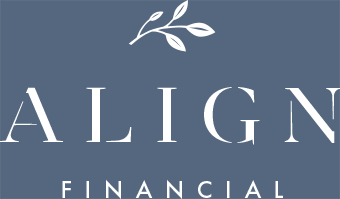Over the course of my more-than-20-year career in the financial advice industry, I’ve witnessed the good, the bad, and the ugly. And while I’m in no way holding myself out as the authority on financial advice, my experience has helped me develop a set of standards for myself for which I expect my clients to hold me accountable. Based on these standards, I’m sharing what I believe are some of the tell-tale signs it’s time to fire your financial advisor–and giving you a script you can use when the time comes to avoid the inevitable awkwardness that accompanies any breakup.
As a financial advisor, coach, and personal development enthusiast, I’m very aware of the power inertia has over us and our ability to make positive changes in our lives. You probably learned at some point that inertia is the tendency for an object in motion to stay in motion–or an object at rest to stay at rest–unless acted upon by an external force. However, these days you may know it better as the invisible weight that keeps you stuck in bad situations for far too long.
Let’s face it, we’ve all been guilty of staying in a less-than-ideal relationship far past its expiration date. Still, most of us can recognize when a personal relationship has gone bad based on how it makes us feel (even if we choose to ignore those feelings). If you’re not as tuned in to those feelings with your financial advisor, it can help to proactively check in with yourself every so often to make sure your needs are being met.
To make these check-ins easier, we’ve compiled a list of red flags to look out for with your financial advisor. Many of them may look familiar to you.
Not sure if it’s time to fire your financial advisor? Look out for these five signs.
#1. They Don’t Call or Write
Poor communication is a red flag in any relationship and almost always leads to more serious issues down the road. So it should come as no surprise that a popular study conducted by Spectrem Group and Vanguard found that four of the top five reasons clients leave their financial advisors are communication-related.
One of the benefits of working with a financial advisor is the communication that takes place between formal meetings. If your advisor consistently doesn’t respond to you in a timely manner (or at all), chances are they’re disorganized, have more clients than they can handle, or simply don’t care about keeping you as a client.
However, that’s just the tip of the iceberg. Most people pay for professional advice because they don’t know what they don’t know. In other words, you should also expect your advisor to proactively reach out to you about the markets, changes in legislation, and anything else that may impact your financial circumstances. The bottom line is if you never hear from your financial advisor, that’s a clear sign it’s time to move on.
#2. They Don’t Listen to You
Even though my clients tend to fit a similar profile, they all have unique circumstances, needs, and objectives that drive their financial plan. While a lot of this information can be gathered through questionnaires, I usually learn more about my clients through casual conversation–when their true concerns and aspirations are revealed.
A good example is risk tolerance. In my experience, a gap often exists between the amount of investment risk clients can take on based on their investor profile and the amount of risk they’re willing to take on. (The latter is typically revealed when we experience our first market downturn together.)
In other words, a questionnaire only captures a portion of the truth. The feedback I get during periods of discomfort is far more valuable when it comes to understanding my clients’ tolerance for risk.
Think back to the conversations you’ve had with your financial advisor over the course of your relationship. Did you truly feel heard, or did your advisor spend most of the time talking? Questionnaires can get a financial plan started, but there are always nuances that require personal interaction. If you feel like your advisor doesn’t “get” you, it may be time to find one who’s more willing to listen.
#3. They Avoid Tough Conversations
Each year Dalbar publishes their Quantitative Analysis of Investor Behavior report reiterating how investors are their own worst enemy. That’s because investors are predisposed to make emotionally driven decisions, which can lead to poorly timed trades–for example, chasing the latest hot dot or going to cash when markets fall and failing to get back in the market in time for its recovery. As a result, most investors fall short of their financial goals when left to their own devices.
As an advisor, one of the most valuable benefits I can offer my clients is simply helping them avoid these bad decisions. Oftentimes, proactive communication, education, and coaching are required to convince them to stick to their investment plan–especially when markets are in turmoil.
Although you may not think you need it, a little reassurance from your financial advisor can go a long way towards helping you stay the course when your confidence starts to waver. More importantly, a simple conversation can keep you from making a decision that undoes years of progress. Make sure your financial advisor is willing to have these tough conversations–you never know when you’ll need it.
#4. You Get the Feeling They’re Hiding Something
Registered investment advisors like Align Financial are legally bound to disclose certain information to our clients, including our fee schedule, whether or not these fees are negotiable, and any compensation we receive beyond our standard fee schedule. However, many financial advisors are still held to what’s called a suitability standard, which only requires them to do what they believe is appropriate for their clients. This distinction can leave investors vulnerable to conflicts of interest and excessive fees.
Whether a financial advisor is a fiduciary or not, you have a right to understand how they’re compensated and what fees you’ll be paying before the relationship even begins. If your advisor can’t clearly explain their fee structure or gets cagey when you start asking questions, who knows what they may be hiding.
#5. They Don’t Want to Hear About Your Hopes and Dreams
Whether you’re developing a plan for your health, career path, or finances, it’s nearly impossible to know what steps to take when you don’t know what you’re working towards. For example, if a nutritionist gave you a meal plan without asking you about your pain points, preferences, and goals, you’d probably leave your appointment scratching your head. Not to mention, there would be no way of knowing if the plan was working, so you’d likely go back to your old eating habits after a while (or find a different nutritionist).
The same is true for financial advice. Goal-setting is a critical component of the financial planning process. The only way to develop an effective financial plan and investment strategy is to know what you ultimately want to achieve. And, as you start to see progress towards your goals, you’re more likely to stick with your plan over the long run.
Many financial advisors brag about their investment results. However, the best investment strategy in the world won’t do you much good if it doesn’t help you meet your goals. Your advisor should spend time getting to know you, your preferences, needs, and goals before handing you a plan. If not, their advice might not be in your best interest.
If You See the Signs, Don’t Ignore Them
If you’ve already seen these warning signs with your financial advisor or start to see red flags now that you’re aware of them, don’t let the lure of inertia keep you stuck. Working with the wrong advisor can have meaningful–and measurable–consequences when it comes to your financial future. For any relationship to succeed, it has to be mutually beneficial.
Like any tough decision, sticking with the “devil you know” closes the door to opportunities that might better serve you in the long run. If you think it’s time to look for a new financial advisor, we’ve created a script you can download and personalize to eliminate the stress of coming up with the right thing to say, plus a checklist of information to gather before moving on. Subscribe to our newsletter below to receive your free copy.
When you’re ready to begin the search for a new financial advisor, our post detailing the 17 questions you should ask any advisor you’re interviewing is designed to serve as a useful resource as you begin evaluating potential replacements.
Finally, if you’d like to learn more about Align Financial and whether we might be a good fit for your financial needs, we encourage you to get in touch.













